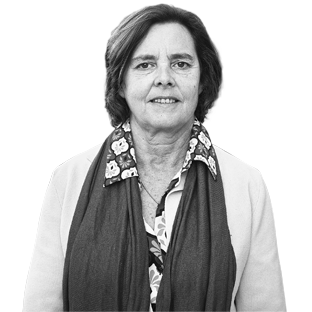In Gironde, a network of organic farmers supported by the Department – Liberation

Faced with the distrust of citizens vis-à-vis the State, institutions or politics, what role can local authorities play? Such was the object of a conference organized in Rouen by the national center of the territorial public service. An event that Release is a partner.
« They are brilliant, they are alive, this freshness is fabulous! » Whether its salads are sold on market stalls, directly from the family farm or land in the plates of the canteens of the schools of Camblanes and Meynac, at the gates of the Entre-deux-Mers, Olivier Reumaux always enjoys people to retort: « Your salads really feel the salad. » A little pride to organize the organic market gardener, in the business since the late 90s. « It’s the same for everything here. Spinach, Aillet, artichoke, asparagus, lamb’s lettuce … In the morning, we have hands in the ground. In the afternoon, you can taste the harvest. You can’t get cooler. It is this local agriculture, providing the neighbor or the village, which animates us here ”, Enthusiastically unfolds the sixties from the castle of the forecourt of Dom Tapiau. With his wife and two employees, he pampers a plot of thirteen hectares where around forty vegetables, hens and vines coexist.
Olivier Reumaux nevertheless recognizes it bluntly, holding this exploitation on a human scale remains difficult. “In organic, crop rotations are longer, more complex. You often have to be more sharp ”, summarizes the farmer, who says he saw several of his colleagues « Damble » In recent years, « Discouraged » by constraints. Girondin composes in particular with what he calls the « distortion » consumers: “On the buyer side, expectations are increasingly high. At the same time, they want to pay their food as expensive as possible. Economic context obliges. » A big gap « complicated » To be resolved, believes Olivier Reumaux, convinced that diversification remains one of the keys to its economic model. Like better communication.
It is to improve the latter that he is the first market gardener to have joined, in 2023, the Firm network Gironde Alimen’terre, a device imagined in 2019 by the Department. It values short circuit production models and connects producers to public procurement, for the benefit of schools, nursing homes or solidarity grocery stores. For consumers, it is also certainty of buying from professionals attached to producing more environmentally friendly food. Free membership is on signing a commitment charter.
“What we obviously noted is a great discomfort in the agricultural world. They repeat it with each big demonstration, it was very striking for wine in Gironde: farmers do not live decently from their profession. They are fed up with standards, unfair competition. The whole administrative side that takes time and which is not their core business. They have the feeling of being abandoned ”, from the outset Jean-Luc Gleyze, socialist president of the department. The elected official advocates a system that leaves market logics to put forward the model of the family farm, of proximity. « The question of the right remuneration must remain central there, he still points out. We were for example bringing up the difficulty of access by farmers to public procurement. ”
The agricultural RSA for operators and agricultural business leaders was one of the first tracks in the department to help those who were most in difficulty. “Objectively, it has been very little in demand since its implementation. Farmers are a rather reluctant profession to ask for social assistance. They do not want to be dependent on public funding ”, Observes Jean-Luc Gleyze. Rather than targeted aid, therefore asked itself the global question of rurality. “France has promoted a lot of urban fact, metropolises, links between cities. There was in parallel a feeling of abandonment in rurality. A form of agriculture that would be “prevented”with a soil favorable to extreme votes ”, analyzes the elected socialist. It is here, according to him, that the community can play a role in « Put the premises to the heart of everything ». The Alimen’Terre network must contribute to it. To date 26 Girondin farms have joined it. The goal is to reach 50 by the end of 2026.
« This network is not a magic wand, but it allows us to consider new income with collective catering », Reports Syméon Gurnade, installed for two years in Baurech, about twenty kilometers south-east of Bordeaux. The market gardener, formerly landscaper and in river tourism, has converted to make « A profession that makes sense ». He wanted in particular « More transparency » in food for her children. Convinced of the interest of detaching itself from the model of large farms to refocus on the ultra localhe cultivates today on his farm, called the Garonnais gardens, around forty vegetables, on 2.5 hectares. « Beyond the network, which helps us make us better known to the inhabitants, the department also allowed me to find land where to settle down. » A decisive help for the very young forty -year -old who would undoubtedly have « Released the case » Without financial help to get started.
Like Syméon, Emeline Bentz, from the Laporte farm, in Labescau, in the South Gironde, managed to settle thanks to communities subsidies. “I joined David, my partner, in 2020. Now that the aid is dried up, because of the economic context, we consider that it is a good thing to continue work with the department. We have the feeling of belonging to a community, of being supported, valued ”, Traces the young woman. It is certain, this network allows them to « Do not pass for utopians and credibility their family farm model » credibility » with other residents. Financially, They receive around 1,200 euros per month. « It’s little, we are aware of it, but we wanted to do without borrowing. Despite everything, we are doing quite well because we swap with the other farmers, we mutualize the orders to reduce costs, we help each other for the work … It is also another rhythm of life. There is a beautiful solidarity ”, says Emeline Bentz. Chard, radish, peas, zucchini, potatoes … Today, the duo is pleased to feed between 80 and 100 families per week.




:format(webp)/s3/static.nrc.nl/images/gn4/stripped/data133280221-bb4cba.jpg)


